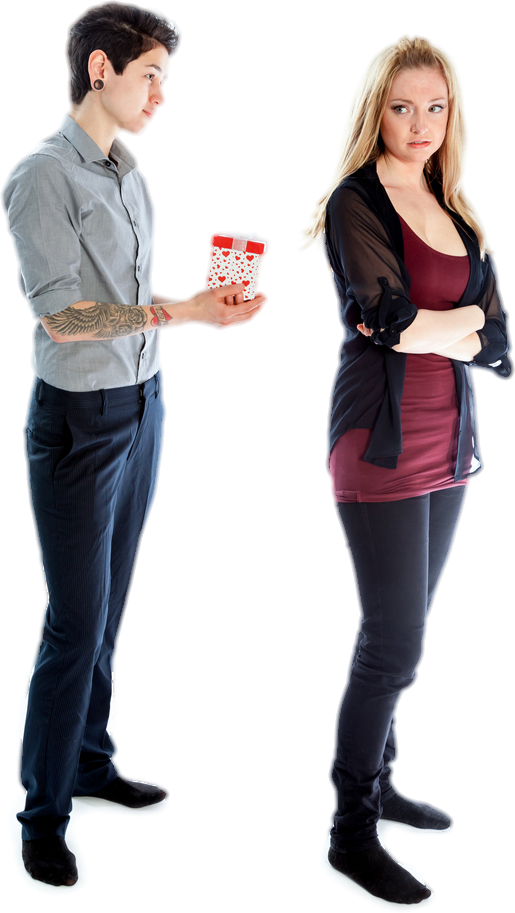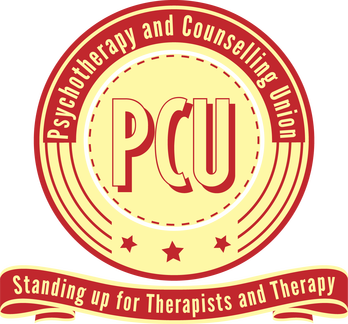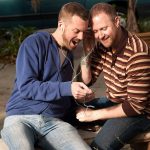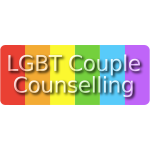
Sex Counselling for LGBTQ+ Relationships
Gay, Lesbian Bi, Aromantic, Asexual (Ace), Mixed (etc) Sex Impairment Counselling that focuses helpfully upon Sexual (Secondary) Dysfunction and Sexual Engagement Difficulties for Couples, Polyamorous Groups and Individuals. LGBT/QIA+ work successfully on physical & emotional sexual acts using interventions developed with the British Counselling Specialist. Trust your most valuable, most intimate partnership to counselling with Dean Richardson MNCPS (Accred/Reg).About Sex Counselling with LGBT/QIA+
When you’re looking for a sexual engagement counsellor for gay men, lesbian women, bisexuals, queers, asexuals, aromantic couples, or any gender- and sexually-diverse relationship that is experiencing problems in the bedroom (or anywhere else you’ve tried), you’d consider Counsellor Dean Richardson MNCPS (Accred/Reg).
Even though we recognise that any relationship can experience sexual distress and dysfunction on occasion, we are not discussing any relationship’s relationship… we’re discussing yours.
What is Sex Counselling?
When sex becomes difficult, complicated, or even impossible, the couple may be left with a significant gap in their relationship that they want to fill together.
At LGBT Couple Counselling we aim to assist partners in beginning to understand their sexual behaviour problems both from a practical point of view (what’s going wrong physically) and from an emotional point of view (considering if a dysfunctional sex life may be a barometer of some deeper problems).
Working with an experienced gay couple relationship counsellor like Dean Richardson can help partners start talking about sex and intimacy issues in a safer environment than talking about it alone. With the counselling process focusing on problems with sexual engagement, partners can find new ways to talk about their intimate, behavioural, and emotional problems together.
The purpose of sex counselling would be to learn about sex-related problems in greater detail. With new knowledge comes new inspiration and creative, practical steps to repair what had become broken.
Sex Life Problems
When we’re talking about the mechanics of sex: there is little – if any – LGBT/QIA+ orientated sex education or gay/lesbian-relationship education in schools or colleges. Chances are that every gay boy and lesbian girl had to figure sex out for themselves (often by trial and error, and sometimes resulting in failure and shame).
It’s completely understandable that many gay men and lesbian women struggle when it comes to intimate sexual relationships.
- As a male gay couple: when he says “no” to sex does his husband hear a rejection and feel shame from opening invitation to intimacy?
- As a lesbian couple: what “she” understands as being “sex” may not be what her partner understands as being “sex” at all. Do their disagreements result in avoiding sexual engagement?
- As a polyamorous group is “goal orientated sex” the only option for all partners because non had heard of any other forms of sex?
Emotional vs Physical
When we’re talking about the emotional side: sex problems can be a barometer of emotional struggles not being discussed between the couple. The energy used to not talk can leave other expressions of energy impotent. Tackling the emotional side within counselling can shift the barometer, and sexual engagement becomes easier.
At LGBTCoupleCounselling.co.uk gay, lesbian, bisexual and queer partners can discover methods to unpack sexual matters that are not being spoken about, and psychological tools that can help them both talk openly with each other about intimate sex matters. Through sex therapy for LGBTQ+ relationships they learn that they can discuss this stuff together.
You’ll both be online in safe surroundings with your counsellor… and we’ll go at your pace.
Sexual Dysfunction (Secondary).
When we’re talking about sex counselling we’re talking about “secondary” sexual dysfunction.
“Secondary” dysfunction refers to emotional blocks and difficulties within sexual relations. “Primary” dysfunction refers to physical causes of sexual problems. Primary dysfunctions are better treated by your GP/Doctor (e.g. a prescription from a GP for Viagra may be helpful to a gay man addressing a primary sexual dysfunction).
Except for the consequences it has on the individual and/or the relationship, primary dysfunction cannot be addressed in counselling. Counselling is better addressing secondary sexual dysfunction.
Example Problems
So, working with sex problems in LGBTQ+ relationship counselling can begin to address worries such as:-
- Basic anatomy and sexual function (e.g. what goes where).
- Secondary Impotence (inability to achieve or maintain an erection – an emotional problem).
- Premature ejaculation (where training techniques may be helpful).
- Inexperience of same-gender sex.
- Vaginismus.
- Uncomfortable or impossible penetration (problems experienced by both gay men and lesbian women).
- Difficulty/inability to orgasm.
- “Performance” anxiety (that is – the stress of engaging sexually when emotionally difficulties are unresolved).
- Partners having different levels of sex drive.
- Partners have different ideas about what “good sex” really means.
- Sex as a means of escape or avoidance (i.e. simulated intimacy).
- Sexual fantasies not matching up to reality.
- ‘Lesbian bed death’ (long-term emotional intimacy interferes with sexual intimacy).
- Body dimorphism (self-worth/self-esteem issues rather than a realistic trans situation).
Every Session Provides…
Different relationship counsellors work in different ways.
Dean's core approach is the integration of psychodynamic and systemic theoretical models (along with whatever is helpful, to be honest!). But let's give you a more plain-English overview of what each counselling session can provide for you.
- A complete 50-minute session (or 90 minutes for throuples and groups) that begins on the hour, will not start late, and ends at a consistent and predictable time.
- Over 24 years of therapeutic skills including: reframing of subject matter that can bring comprehension, behavioural interpretation, identification of unconscious processes (projection, splitting, etc), insightful comments, observations, active listening, and knowledge of LGBTQ+ relationships that can help you make informed choices around relationship change.
- Non-judgement respect for this being your distinct relationship, avoiding diagnoses, pathologising, and prescribing to you: "how a normal relationship would deal with this is..."
- Techniques and approaches that can help all partners confront, halt and transform unhappy behaviour.
- Unlimited opportunities to contribute your own ideas, suggestions and hypotheses.
- Unlimited opportunities to gain new knowledge and comprehension about their partner's (and their own) behaviour and motivations in the context of this relationship.
- Unlimited homework opportunities: to discuss, plan and design your own homework in between sessions.
- The same counsellor every session, so that the connection you build with Dean can become dependable and trustworthy.
- Weekly appointments scheduled for the same day and time (excepting planned holidays), giving you the flexibility to manage your personal schedule without squeezing-in future counselling sessions.
- A professional facilitative approach that can assist you and your partner(s) in identifying your own problems, interrupting faults, and putting in corrective behaviour. A strategy you can use and re-use for years to come.
- A therapist who listens for the problems that your relationship cannot hear and who maintains a neutral position (e.g. does not take sides).
- Reliable and containing boundaries - whether it's as simple as time keeping or more complex such as distressing subject material.
- Flexible and dynamic outcomes - your goals at the beginning of our work together may change over time. We will manage whatever new matters your relationship needs to attend to.
- Helpful support during distressing and emotional times.
- Support in finding ways to bring the counselling work to an end. We can stop our work at any time, and discussing this with your counsellor can help find creative ways to plan for the partners to continue their work.
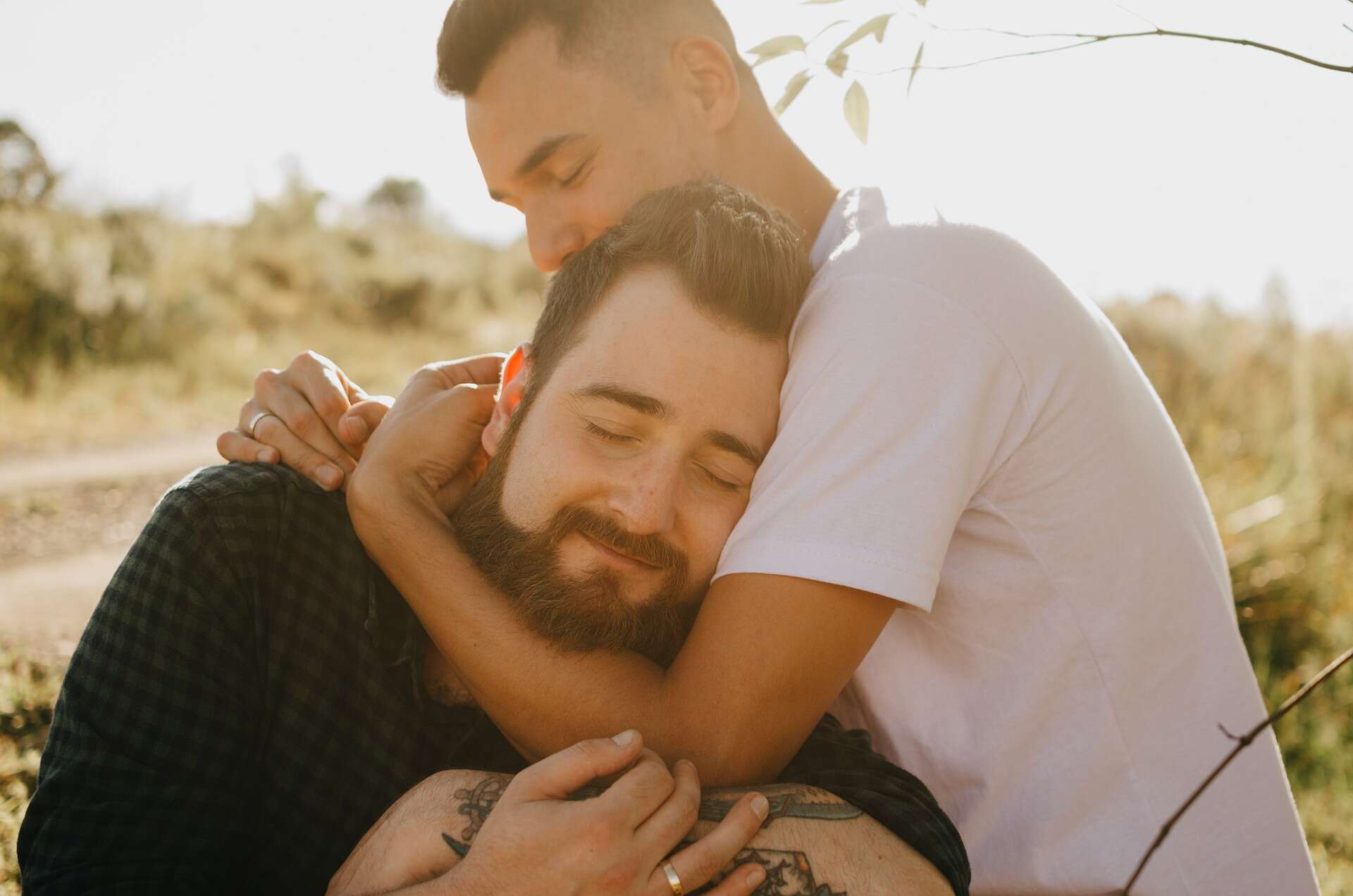
Couple Counsellors vs (Psycho)Sex Therapists.
Couple counsellors ~ such as Dean Richardson MNCPS (Accred/Reg) have training primarily in relationship matters… and counselling sexual dysfunction is a part of that training.
Psychosexual therapists have training primarily in sexual-functioning matters… and may also have training in counselling couple-relationship matters too.
So, there is an overlap – a grey area – in between how both therapists practice.
Primary or Secondary Dysfunction
As a gay or lesbian couple seeking relationship counselling you may wish to decide if your sexual partnership is struggling primarily with emotional/relationship intimacy problems, or is struggling primarily with a physical dysfunction. This may help navigate you towards the right kind of therapist for you both.
If you’re unsure, you’re welcome to make contact with Dean for an opening counselling session to help you both make the right decision for your needs Making an informed decision may be a helpful option for your partnership.
Effective Approaches to Sex
A relationship i counselling will take an active part in developing their own treatment plan along with their counsellor.
Perhaps the partners will initially look to the counsellor to “tell them how to fix things,” but an effective relationship counsellor will involve the partners themselves in developing their plan (i.e. not prescribe “treatments”).
There will be homework to do!
The counsellor may ask questions that the partners have not thought about before. This can make the partners curious about their sexual function problems, which may help them start to understand each other better than they did before. With new information comes new options and choices, as well as the possibility of beginning to resolve issues with their sexual life.
A Verbal-Only Approach
LGBT/QIA+ Sex Counselling at LGBTCoupleCounselling.co.uk takes the form of verbal discussion in session. No sex (i.e. undressing etc.) will happen during the counselling sessions. Sex will (of course) be discussed in the privacy of the partners’ home, but the preparations and discussions about sex (in session), while potentially embarrassing at first, can be a huge relief as the partners become used to such discussions.
Subjects too intimate for counselling sessions may be reserved for the safety of the partner’s own private discussions… bringing back to the counsellor what the partners found difficult to work through on their own..
When your Relationship Sucks…
(Sorry – bad joke 🤣).
Sex counselling for LGBT Couple Relationships is a wise choice you and your partner can make.
There are no practical instructions (no “do it in front of me” from the therapist). It’s all talk, all preparation, all experimental and all feedback into the next session.
Couples frow to develop their own transformational approach, helping them engage sexually again, and helping them to make the counsellor redundant (seriously!).
Through counselling: address intimate sex-life problems resulting from intimacy and relationship conflicts… together.
About Dean Richardson MNCPS (Accred/Reg)
You could choose any couple / group counsellor…
Given that this will be the most intimate and vulnerable you could feel alongside your partner(s), you would want a skilled professional whose experience and specialism you could trust; whose focus would be upon your distinct relationship. Your couple, throuple or group relationship will be in good hands with Dean. He works from Great Britain, is Independent of "box 'em/shift 'em" therapy services, and identifies as a gay couple counsellor. He's also easily payable in pounds sterling! Dean already had an impressive 16 years actual video "webcam" experience - way before the first British emergency began (when suddenly many counsellors added a Video option to their portfolio, having not practised so previously! 🤔).
What makes Dean Distinct
- Dean is sensitive and effective to your sexuality / gender-identity and intimate ways of relating to each other. You'll discover quickly that Dean is an informed member of your own community.
- Dean demonstrates adept skills with lesbian, gay, bisexual, asexual, fluid, mixed sexuality and same-or-mixed gender relationships having over 24 years' experience as a counsellor.
- Dean avoids taking a the role of "all-knowing expert" (whether requested or projected onto him by the clients). "Experts" tell you what to do, do not learn very well from others, and struggle to adapt to new situations. A couple counsellor must be curious, adaptive, and ask questions from a "not knowing" position so that the relationship in counselling benefits from re-examination.
- Dean speaks plain English (and can swear like a virtuoso if you like, or not at all if you prefer). He works cooperatively with your relationship (no unnecessary silence, or just "hmms...").
- Dean was originally accredited by his first professional body 15 years ago; he is now an accredited registrant with The National Counselling and Psychotherapy Society. Accreditation is a valued recognition of a counsellor's substantial experience. Dean is also a member of the Psychotherapy and Counselling Union of Great Britain.
- Dean is a British Counsellor working from the South of England. Unlike other counselling services operating from abroad Dean is registered, accredited, insured & supervised from within England (not from abroad).
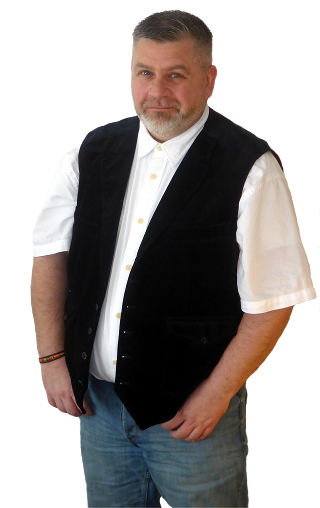
If any of this resonates with you and your partner(s), you should probably meet with the Gay Relationship Counsellor: Dean Richardson MNCPS (Accred/Reg) via Zoom, Skype, Whatsapp and other secure, reliable video conferencing media.
Dean focuses on LGBT/QIA+ relationships as a specialty in therapy. He works with individuals, couples and small groups. Plus, he's qualified to a postgraduate level (Chichester PG Diploma in Psychodynamic / Systemic Couple Counselling, IGA National Foundation in Group Counselling), and works as a private practice counsellor employing 24+ years experience*.
(*Very Important: not all counsellors have such specific skills for working with couples nor groups. Those who are initially trained to use common "Individual" Counselling skills have no experience in working therapeutically with relationships. Such counsellors may try, perhaps out of misplaced goodwill, to employ "individual" techniques (multiplied by 2) but the couple or group will find that the approach is ineffective. Simply put: it's the wrong approach; your relationship is not part of the counsellor's primary theoretical framework. Remember always to ask your potential counsellor: "what qualifies you to work with our relationship?" and trust your instincts based on what you hear.



